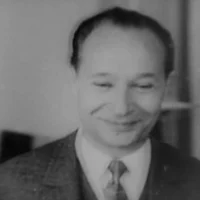The civil war in El Salvador lasted from 1979-1992 and was fought between the government and the Farabundo Martí National Liberation Front (FMLN), a coalition of five leftist guerrilla groups that attempted a military coup in 1979, which was followed by many violent attacks on the government and civilians. On November 11, 1989, twenty armed guerrillas stormed the… Read More "El Salvador, the Sheraton Hotel Siege and the Jesuit Murders — November 1989"
444 Days — The End Game
The 444-day-long Iran Hostage Crisis ranks as one of the most traumatic diplomatic events in U.S. history and even thirty years later still colors diplomatic relations with Iran. In these excerpts, John Limbert describes the negotiations that eventually led to the release of all the hostages Iranian Revolutionaries attacked the embassy, their (surprisingly) triumphant arrival in… Read More "444 Days — The End Game"
The Birth of the Chemical Weapons Convention (and the OPCW)
Recent events in Syria have once again spotlighted the dangers of chemical weapons and international efforts to catalog and destroy them. The Convention on the Prohibition of the Development, Production, Stockpiling and Use of Chemical Weapons and on their Destruction (otherwise known as the Chemical Weapons Convention or CWC) was opened for signature with a… Read More "The Birth of the Chemical Weapons Convention (and the OPCW)"
A Gamble for Peace – Negotiating the Camp David Accords
Unrest in the Middle East has been an unrelenting problem for centuries, the Gordian knot that cannot be cut. The founding of Israel in May 1948 further complicated matters, leading to several wars and a state of heightened tension. While there have been many international efforts to find a lasting peace in the Middle East,… Read More "A Gamble for Peace – Negotiating the Camp David Accords"
Laos 1973 – No Coup for You!
While the eyes of America were on Vietnam, another war was being fought next door in Laos. Involvement of the United States in the war was frequently denied, leading to the name of the “Secret War in Laos” in the American press. The Laotian Civil War began when the Communist Pathet Lao challenged the Royal… Read More "Laos 1973 – No Coup for You!"
In 1968, growing opposition to the failing sociopolitical and economic policies of hard-line Communist regime in Czechoslovakia, led by Antonín Novotný, finally came to a breaking point. Reformist politician Alexander Dubček replaced Novotný as First Secretary of the Communist Party of Slovakia. The period that followed, known as the Prague Spring, saw an expansion in… Read More "A Cold End to the Prague Spring"
Stalin’s Legacy: The Nagorno-Karabakh Conflict
Nagorno-Karabakh is a highly contested, landlocked region in the South Caucasus of the former Soviet Union. The present-day conflict has its roots in the decisions made by Joseph Stalin when he was the acting Commissar of Nationalities for the Soviet Union during the early 1920s. In April 1920, Azerbaijan was taken over by the Bolsheviks; Armenia and Georgia were… Read More "Stalin’s Legacy: The Nagorno-Karabakh Conflict"
Terror on the 9th Floor — The Kuala Lumpur Hostage Crisis
On August 4th, 1975, five members of the Japanese Red Army or JRA – a militant organization intent on overthrowing the Japanese government and starting a worldwide revolution – stormed the United States embassy on the 9th floor the AIA Insurance building in Kuala Lumpur, Malaysia. The tallest building in Malaysia at the time, it… Read More "Terror on the 9th Floor — The Kuala Lumpur Hostage Crisis"
The Tiananmen Square Massacre — June 4, 1989
The 1989 massacre at Tiananmen Square was one of the most heart-wrenching displays of state suppression of peaceful assembly in recent history. Following the death of pro-reform Communist leader Hu Yaobang in April 1989, thousands of Chinese students gathered in Beijing’s Tiananmen Square to march in his memory. Within days the gathering had transformed into… Read More "The Tiananmen Square Massacre — June 4, 1989"
The Chinese Interpreter Who Said “No” to President Nixon
It is one of the most important Presidential visits in American history. Richard Nixon’s meeting with Chairman Mao led to a diplomatic opening with China and greatly altered geopolitics. Being a member of the official delegation was, of course, a great honor, and everyone did what they were asked to do by the White House.… Read More "The Chinese Interpreter Who Said “No” to President Nixon"

